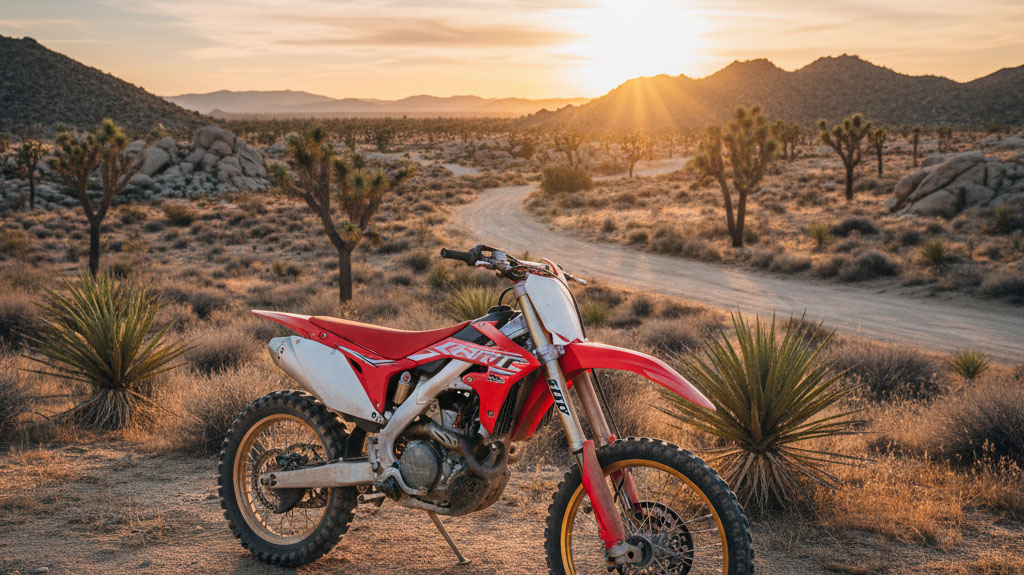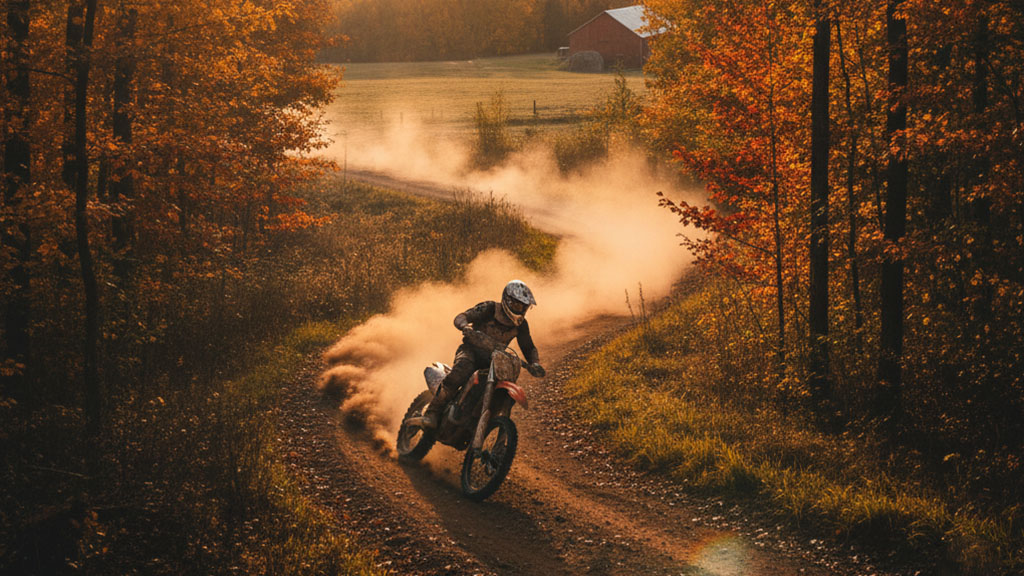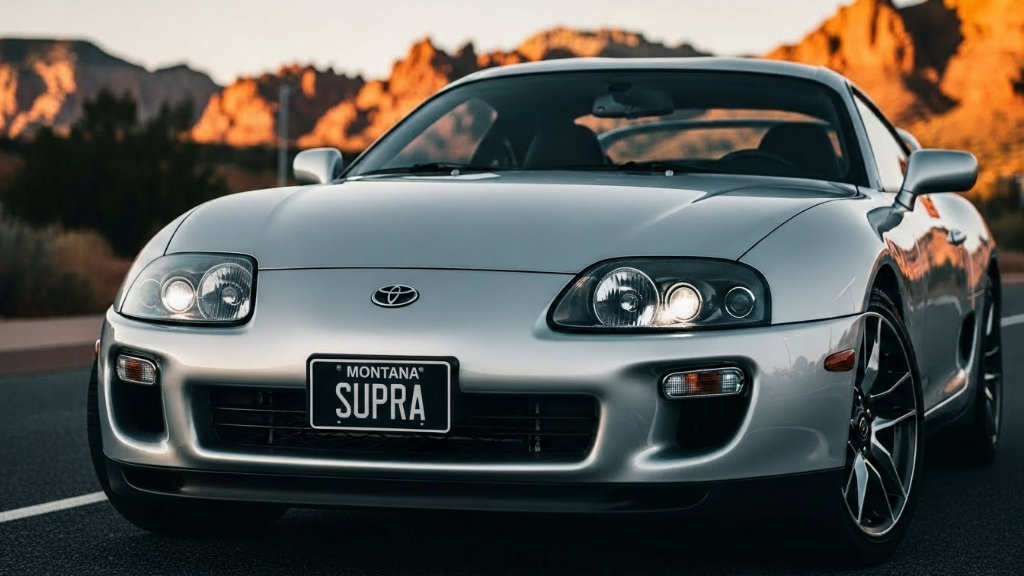Off-Road Use: Registration Requirements
In Indiana, all off-road vehicles (ORVs), including dirt bikes operated off-road, must be registered with the Bureau of Motor Vehicles (BMV) unless exempt.
Registration Details:
- Requirement: All ORVs operated in Indiana must be registered with the BMV and display valid ORV decals, unless exempt.
- Fee: Registration is $30 and is valid for three years.
- Decals: Two decals are issued per registration and must be affixed to both sides of the forward half of the ORV.
- Certificate of Registration: A pocket-sized certificate is provided and must be carried on the vehicle and made available for inspection by law enforcement officers.
Exemptions:
Registration is not required for ORVs that:
- Are exclusively operated in a special event of limited duration conducted under a permit from the governmental unit having jurisdiction.
- Are registered in another state or country and operated by a nonresident of Indiana for a period not to exceed 20 days in a calendar year.
- Are being operated for purposes of testing or demonstration, with dealer certificate numbers placed.
- Are owned or leased and used for official business by the state, a municipal corporation, a volunteer fire department, or the United States government or its agencies.
- Are operated by a person who has in their possession a bill of sale from a dealer or private individual that is no more than 45 days old and includes the purchaser’s name and address, date of purchase, and vehicle details.
Title Requirements:
- ORVs purchased after December 31, 2009, must be titled with the BMV.
Helmet and Eye Protection:
- Under 18: Operators and passengers under 18 are required to wear a DOT-approved helmet when operating or riding on an ORV.
- All Riders: Eye protection is recommended for all riders, regardless of age.
Operation on Public Roads:
- Operation of ORVs on public roads is generally prohibited. However, laws governing ORV use on public roads are made individually by each county. Counties may have different requirements and restrictions. Riders should review county ordinances before riding or contact local government or the local DNR Law Enforcement District.
Lighting Requirements:
- If operating during low-light conditions, the dirt bike must be equipped with a functioning headlamp and taillamp.

Street Use: Converting a Dirt Bike to Street-Legal
Converting a dirt bike to be street-legal in Indiana is challenging due to state regulations. The BMV will not issue a license plate for an ORV, regardless of modifications such as turn signals or windshield wipers added to the vehicle.
Alternative Registration Methods:
Some riders have explored registering their dirt bikes in other states with more lenient laws and then transferring the registration to Indiana. However, this process may involve additional steps and fees, and success is not guaranteed.
Required Equipment for Street-Legal Conversion (if possible):
If eligible for registration, the following equipment is typically required:
- DOT-approved headlight with high and low beams.
- Taillight with brake light function.
- Rear reflector.
- Turn signals (front and rear).
- Rearview mirrors (one on each side).
- Horn audible from at least 200 feet.
- Speedometer and odometer.
- DOT-approved tires.
- Muffler to comply with noise regulations.
- Chain guard.
Title and Registration:
- Obtain a title from the Indiana BMV.
- Register the bike with the Indiana BMV.
- Submit the necessary forms and documentation to the Indiana BMV.
Inspection:
- Have the bike inspected by a licensed inspection station to ensure it meets all safety and emissions standards.
Insurance:
- Secure liability insurance for the bike.
License Plate:
- Affix a valid Indiana license plate to the bike in a visible and unobstructed manner.
Where You Can Ride
Off-Road:
- Private Property: Riding on private property is permitted with the landowner’s consent.
- Public Lands: Riding on public lands is allowed only in designated areas and trails. Indiana has several OHV trails and parks where off-road riding is permitted, such as:
- Interlake Off-Road State Recreation Area: 3,500 acres located in Lynnville, IN.
- Redbird Off-Road State Recreation Area: Over 1,400 acres located in Linton, IN.
- Interlake Off-Road State Recreation Area: 3,500 acres located in Lynnville, IN.
On-Road:
- Permitted Roads: Operation of ORVs on public roads is generally prohibited. However, laws governing ORV use on public roads are made individually by each county. Counties may have different requirements and restrictions. Riders should review county ordinances before riding or contact local government or the local DNR Law Enforcement District.
Crossing Roads: Off-road dirt bikes may cross public roads at a 90-degree angle during daylight hours, provided they come to a complete stop and yield to oncoming traffic.

Rider Requirements
- License: A valid driver’s license with a motorcycle endorsement is required to operate a street-legal dirt bike on public roads.
- Helmet Use: Riders under 18 must wear a DOT-approved helmet; helmet use is recommended for all riders.
- Insurance: Liability insurance is mandatory for all street-legal vehicles in Indiana, including dirt bikes.
Penalties for Non-Compliance
Failure to adhere to Indiana’s dirt bike laws can result in:
- Fines: Monetary penalties for unregistered or improperly equipped vehicles.
- Impoundment: Unauthorized vehicles may be impounded by law enforcement.
- License Suspension: Operating without a valid license or insurance can lead to suspension of driving privileges.
Relevant Indiana Laws and Agencies
- Indiana Bureau of Motor Vehicles (BMV): Handles vehicle titling, registration, and licensing.
- Indiana Department of Natural Resources (DNR): Manages public lands and designated OHV trails.
- Indiana Code Title 9: Outlines motor vehicle laws, including those about dirt bikes and off-road vehicles.
Start your street-legal process today with Dirt Legal.



